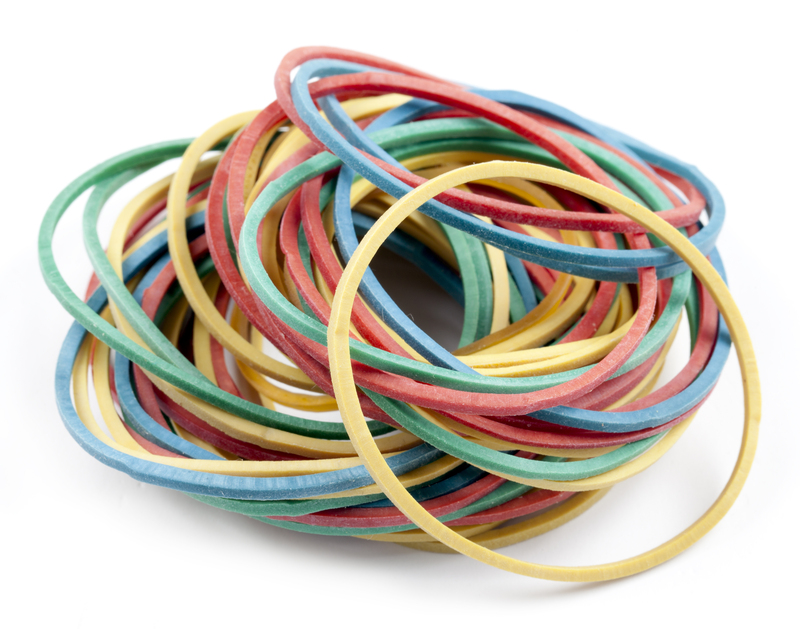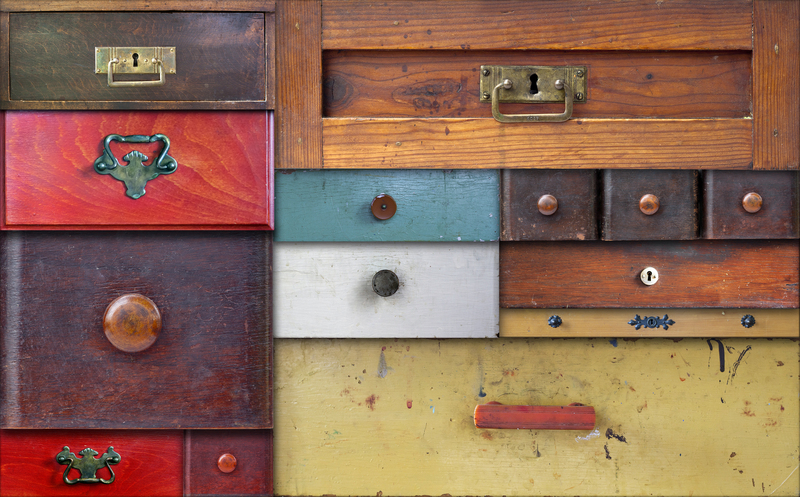Engage and Inspire: Kids and the World of Recycling
Are you ready to ignite curiosity and eco-consciousness in your children? Recycling for kids is more than just sorting paper and plastic - it's an adventure that shapes young minds for a brighter, greener tomorrow. This comprehensive guide reveals innovative ways to engage your kids in the world of recycling, fostering lifelong environmental responsibility and fun learning experiences along the way.

Why Should Kids Learn About Recycling?
Recycling for children isn't just about teaching responsibility; it's about empowering them to make a difference. Early exposure to the concept shapes vital behaviors and attitudes regarding resource conservation and sustainability. Here's why it matters:
- Environmental Impact: Kids discover their actions help protect the planet from pollution, climate change, and resource depletion.
- Building Habits: Young children who recycle are more likely to continue these habits into adulthood, ensuring a cleaner future.
- Learning Responsibility: Recycling teaches kids the value of stewardship - caring for the world and its communities.
- Empowerment: By recycling, kids realize they aren't too small to make a big difference in their neighborhood and beyond.
According to recent research, children who participate in environmental activities are more likely to develop empathy towards nature and a sense of responsibility for their surroundings.
The Basics of Recycling Explained For Kids
Before engaging kids in recycling, they must first understand the basics of recycling and why it matters. Here's an overview designed specifically for curious minds:
What is Recycling?
Recycling is the process of collecting and transforming old materials into new items. Instead of being thrown away and polluting our world, materials like plastic, paper, glass, and metal get a new life. Simply put - it's giving garbage a second chance to shine!
The Magic of the Three R's
- Reduce: Try to use less and avoid waste in the first place. Can we use a reusable bag instead of a plastic one?
- Reuse: Find new ways to use old items. Can old jars become pencil holders?
- Recycle: Turn waste into something useful again. Which items can be made into new products?
Teaching the three R's of recycling makes the process simple and memorable for kids of all ages.
Fun Ways to Engage Kids in Recycling
The excitement of recycling for kids comes from turning an everyday activity into a fun adventure. Here are engaging ideas to get your child involved:
1. Recycling Scavenger Hunts
Set up a game where kids search for recyclable items around your home or school. Turn it into a friendly competition - who can find the most recyclables in 10 minutes? This transforms learning into play and helps kids recognize what can be recycled.
2. Colorful Recycling Bins
- Buy or decorate bins with bold labels ("Plastic," "Paper," "Glass," "Trash").
- Encourage kids to color-code bins using vibrant reusable stickers.
- Let your child be in charge of enforcing the system -- give them a badge to become the official "Recycling Captain."
Vivid colors and a sense of responsibility spark children's interest and pride in proper recycling.
3. Creative Upcycling Crafts
Why toss out milk jugs or egg cartons when they can become art supplies? Encourage your kids to craft bird feeders, plant pots, or pencil holders from old containers. Upcycling gives materials a new purpose and shows kids how creativity can help the environment.
4. Family Recycling Projects
- Set family recycling goals - challenge everyone to recycle a certain amount each week.
- Collaborate on larger projects, such as building a compost bin or starting a neighborhood recycling drive.
- Celebrate achievements with eco-friendly prizes or a special day out.
5. Storytime and Recycling Books
There are many engaging children's books about recycling and the environment ("The Adventures of a Plastic Bottle," "Michael Recycle," and more). Use these stories to spark discussions and inspire your children's imagination about helping the planet.
6. Field Trips and Virtual Tours
Organize a visit to a local recycling center, landfill, or waste management facility. If in-person visits aren't possible, take a virtual tour online. Seeing the recycling process firsthand is a powerful way to make recycling real and relevant for kids.
Teaching Kids What Can and Cannot Be Recycled
Knowing which everyday items belong in the recycling bin prevents confusion and contamination. Here's a simple guide for kids:
Commonly Recycled Items
- Paper and cardboard - newspapers, boxes, school papers
- Plastic bottles and containers - water/soda bottles, yogurt cups
- Glass jars and bottles - clear, green, or brown glass only
- Metal cans - aluminum soda cans, tin food cans
Items that Should Stay Out of the Bin
- Food wrappers and greasy pizza boxes
- Styrofoam and plastic bags (unless your city allows it)
- Batteries and electronics (need special recycling)
- Broken glass and mirrors
Tip: When in doubt, check your local recycling guidelines together with your child - it's a valuable research skill!
Inspiring Kids to Think Beyond Recycling
While recycling is essential, teaching kids the value of reducing waste and reusing items leads to an even greater environmental impact. Here are smart strategies to inspire kids:
- Encourage lunches without single-use plastics - use reusable bottles, lunchboxes, and containers.
- Start a "reuse box" at home for items like rubber bands, gift wrap, or jars.
- Organize a toy or book swap with friends to give old items new life and reduce overall consumption.
Expanding the lesson from recycling to the entire waste hierarchy ("Reduce, Reuse, Recycle") gives children the full toolbox of eco-friendly habits.
Games and Technology to Make Recycling Exciting
Leverage technology and play to boost your child's enthusiasm for recycling:
- Recycling-themed games and apps: Try educational apps where kids sort digital recycling or earn eco-points for learning green facts.
- Online videos: Use short animated clips to visually demonstrate the recycling process and the journey of materials from bin to new product.
- Interactive quizzes: Create family quizzes to test everyone's recycling knowledge and reward correct answers with a fun, green treat.
Teaching Kids Recycling at School
Schools play a vital role in recycling education. Talk to teachers and administrators about school recycling programs that teach and inspire kids daily. Ideas include:
- Start a student-led recycling club or "Green Team."
- Place recycling bins in all classrooms with clear, kid-friendly labels and bright graphics.
- Hold assembly presentations, poster contests, or recycling challenges between classes or grades.
- Invite local sustainability experts to speak or demonstrate how recycling works in your community.
When recycling becomes a shared value at school, kids are more likely to take the lessons home -- spreading a community-wide impact.
How to Motivate Kids: Rewards, Recognition, and Positive Reinforcement
Positive feedback and recognition are powerful motivators for children learning new behaviors like recycling:
- Use rewards charts to track recycling efforts -- offer special experiences (like a park trip or favorite meal) when goals are reached.
- Display children's upcycled crafts in a visible spot to celebrate their creativity and environmental contribution.
- Share your child's recycling achievements with friends, family, or on social media (with permission) to boost their pride.
- Encourage kids to teach others what they've learned - peer-to-peer education is one of the most effective ways to inspire change.
Simple Everyday Changes Kids Can Make for a Greener Planet
Aside from recycling, children can take meaningful action to help the environment every single day. Here are a few easy steps:
- Turn off lights and electronics when not in use to save energy.
- Take shorter showers to conserve water.
- Pick up litter in parks or playgrounds and always use bins when outdoors.
- Choose reusable water bottles and lunch containers.
- Participate in community cleanups or tree-planting events.
Small actions, when multiplied by passionate kids across the world, can lead to remarkable positive change.
Common Questions Kids Ask About Recycling
- Why can't all plastics be recycled? -- Different types of plastics require unique processes, and some can't be broken down safely or cost-effectively.
- What happens to things after they're recycled? -- Items are cleaned, broken down, and turned into new products, like playground equipment, clothing, or even furniture.
- Is recycling important everywhere? -- Yes! Whether at home, school, or in the community, every bit helps protect our planet.
Encouraging questions and curiosity creates a culture of learning and responsibility around recycling.

Real-Life Role Models: Kids Making an Impact
All around the globe, children are leading the charge for a greener future through recycling:
- In California, 13-year-old Ryan Hickman started Ryan's Recycling and has recycled over a million bottles and cans!
- A group of students in India launched a plastic waste campaign that changed their school's recycling habits and inspired local businesses to follow suit.
- You can find inspiring kid activists worldwide who have convinced their neighborhoods to go green simply by showing what's possible through action.
Sharing these stories with your child proves that every act of recycling can make a real difference -- and that kids have the power to lead the way.
Final Thoughts: Raising the Next Generation of Eco-Heroes
When we engage and inspire kids in the world of recycling, we do more than keep waste out of landfills -- we nurture a generation with the skills, optimism, and determination to solve environmental challenges.
- Make recycling a daily habit, not a chore.
- Support your child's creativity with upcycling and reusing projects.
- Cultivate curiosity and environmental literacy at home and at school.
- Encourage leadership and participation in community green initiatives.
Remember, every recycled bottle, reused jar, and inspired conversation plants a seed for a cleaner world tomorrow.
Start small, think big, and watch as your child becomes a true recycling champion - inspiring others and making a positive impact on the planet.
Resources to Continue Learning
Engage, inspire, and help your child change the world--one recycled item at a time!